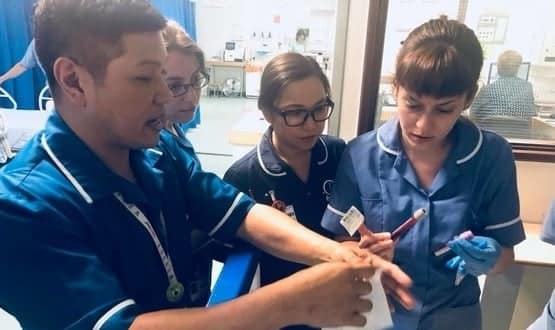University Hospital Southampton showcases GDE successes
- 22 October 2018

University Hospital Southampton NHS Foundation Trust has shared details of the technologies that have been introduced across the organisation as part of the Global Digital Exemplar (GDE) programme.
On Friday, Rafael Sorribas, clinical lead for NHS Digital, met with staff to discuss progress.
Southampton was one of 16 trusts named as part of the NHS England programme, which aims to create a group of reference sites for NHS digitisation.
Sorribas was shown examples of the technologies that have been rolled out across the trust as part of this.
This includes a pilot of an app in critical care called digiRounds, which provides access to key clinical information such as observations, drug charts, laboratory results and handover notes on smartphones and tablets.
In addition, clinicians have been trialling the use of Medxnote, a WhatsApp-style messaging app designed to replace pagers that enables staff to exchange confidential patient information and photographs quickly but securely.
Jo Watts, GDE programme manager at UHS, said: “We are really pleased to have the opportunity to share some of our recent developments with NHS Digital and demonstrate the impact this investment is having in IT across the trust.
“It is also a chance for some of these initiatives to be explored by other organisations, potentially helping to benefit patients and staff on a much wider level.”
Other digital developments shown to Sorribas included the trust’s interactive whiteboards, which display information taken directly from a patient’s electronic record, including existing medical conditions, length of admission and predicted discharge date.
Staff also highlighted the success of My Medical Record, a personal online health record which patients can access from home, and Sample 360, an electronic blood tracking system that involves scanning patients’ barcoded wristbands and labelling samples on the spot, to prevent errors.
Adrian Byrne, director of informatics at UHS, added: “The digital innovations we are introducing across the trust are revolutionising the way we run our hospitals, deliver services for patients and support our staff.
“Our current projects cover everything from identifying deteriorating patients earlier and providing online access to health records, to making notes, observations and tests results available to clinicians on smartphones and tablets and undertaking digital ward rounds.”




